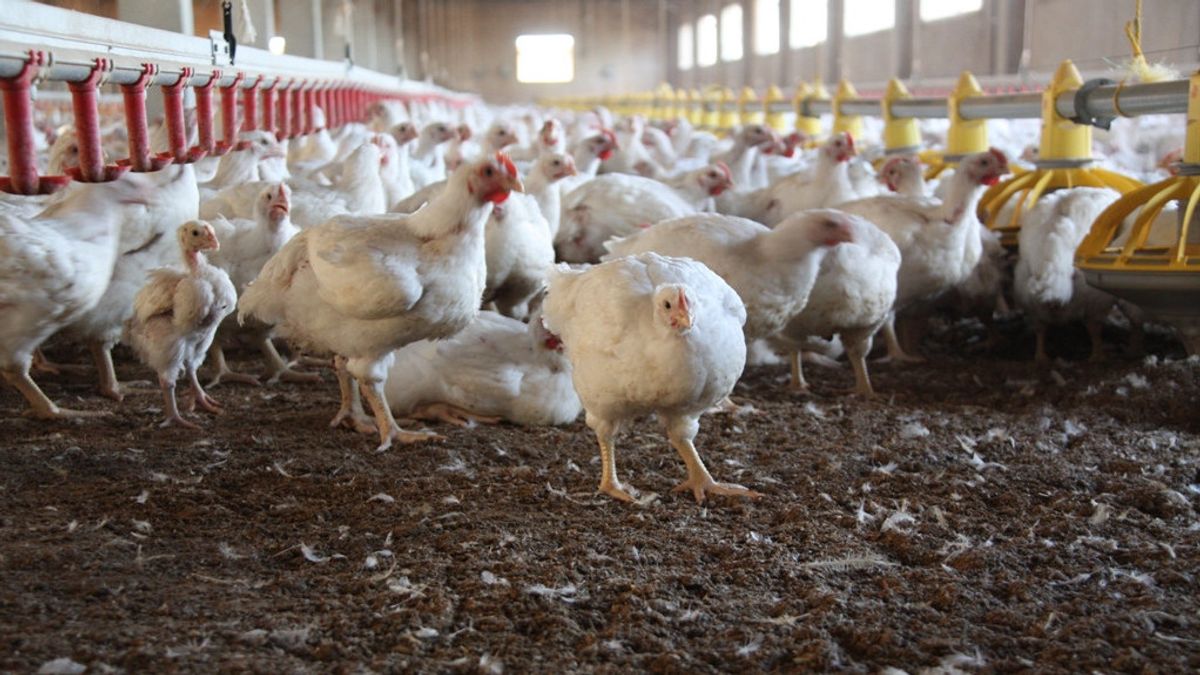JAKARTA - An outbreak of bird flu has been confirmed in Aomori Prefecture in northern Japan, with 7,000 chickens scheduled to be culled, Kyodo news agency reported on Sunday.
According to the prefectural authority, a poultry farm confirmed it found several dead birds on Friday last week. Genetic analysis showed the presence of strain 5 which was highly pathogenic.
There are now restrictions on transporting chickens and eggs within a three-kilometre (1.8-mile) area around the farm, as well as exporting chicken and eggs outside a 10-kilometer (6.2-mile) radius, citing Sputnik News Dec. 12.
Aomori Prefecture is the eighth Japanese prefecture to confirm a bird flu outbreak this season.
Earlier citing Nippon, the government of southwest Japan's Kumamoto prefecture announced it had confirmed an outbreak of avian influenza which is believed to be highly pathogenic at a chicken farm in Nankan City Dec. 3.
It was the fifth confirmed bird flu outbreak this season at a poultry farm in Japan and the first in the prefecture. The prefectural government plans to cull about 67,000 chickens on the farm.
According to the prefecture, the local livestock health center received reports from the farm that more and more chickens were found dead. After a simple test showed a positive result, the avian influenza virus was found to be highly pathogenic in genetic testing.
Last November, Japan confirmed the highly pathogenic avian influenza subtype H5N8 was detected on a poultry farm in the country's third bird flu outbreak this winter, the agriculture ministry said.

The outbreak was discovered on November 15 at a farm with about 11,000 egg-laying hens in Izumi City, southwestern Japan's Kagoshima Prefecture, the ministry said in a statement on its website.
It comes as several severe bird flu outbreaks in Europe and Asia have been reported to the World Animal Health Organization in recent times, in a sign the virus is spreading rapidly again.
"The NA subtype of the highly pathogenic avian influenza virus has been identified and confirmed as subtype H5N8," the ministry said.
The bird flu outbreak in the fall 2020 to spring 2021 was the largest in Japan's history. The virus attacks more than a third of the prefecture, around 10 million chickens are culled on more than 50 farms.
Meanwhile, the increase in the number of people worldwide infected with bird flu this year is a source of concern for epidemiologists, especially as the world slowly recovers from the COVID-19 pandemic.
China has reported 21 human infections with avian influenza subtype H5N6 in 2021 to the World Health Organization, compared with just five years ago,
In February, Russia registered the first case of the H5N8 strain transmitted to humans from birds and reported the problem to WHO. There are no signs of human-to-human transmission.
Japan temporarily suspended exports of chicken meat and eggs from all regions earlier this month after reporting the first outbreak, although the ministry said consumption of those items, if infected, poses no risk to humans.
Last winter, Japan experienced its worst winter flu season on farms, with nearly 10 million chickens culled and more than a third of the country's prefecture affected.
To note, Japan has an egg-laying flock of about 181 million chickens and a broiler population of 140 million, according to the agriculture ministry.
Anti-viral treatments can be effective against bird flu, but there is no vaccine for humans, according to the UK's National Health Service website.
The English, Chinese, Japanese, Arabic, and French versions are automatically generated by the AI. So there may still be inaccuracies in translating, please always see Indonesian as our main language. (system supported by DigitalSiber.id)













